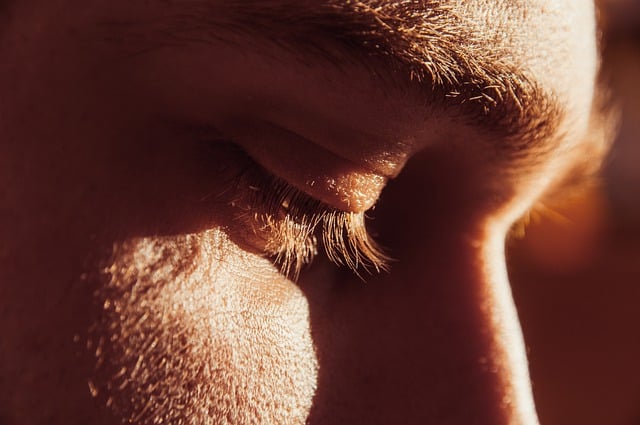By: Cornelis Johannes Nel, BPSYCH Hons, HPCSA Registered Counsellor (PRC 0043141)
Men with brain injuries often face compounded mental health struggles, amplified by societal stigma and expectations. This piece explores how these pressures uniquely impact their well-being and the urgent need for better support.
Men’s mental health often fades from attention outside specific awareness campaigns, with dangerous consequences in South Africa. For BI/TBI survivors, being overlooked and stigmatised is, unfortunately, a familiar experience. Many survivors face marginalisation, belittlement, and discrimination, which can be isolating and deeply lonely. These challenges, compounded by potential cognitive or physical impairments, make mental health concerns particularly pressing for BI survivours.
Men’s Mental Health, Brain Injury and Stigma
Often, survivors may try to hide their brain injury deny its existence, or struggle to accept it. This may stem from fear of stigma, either from others or themselves. Hiding a brain injury can hinder maintaining a healthy, accommodating lifestyle, which in turn may cause severe mental health challenges. And those who conceal their BI often lack crucial support structures for healthy engagement with life. For those in denial or unwilling to accept their brain injury’s full impact, intense shame and self-stigma are common underlying factors.
While these aspects of brain injury affect both genders, in this piece, I’ll be focusing on men’s mental health in brain injury. Men are often expected to stay silent and strong in the face of adversity and tough life challenges. Despite progress in gender inclusion, societal and cultural norms still place pressure on men to conform to traditional ideas of masculinity, which often discourages emotional expression. Men are often taught to fear stigma, the perception of weakness, or being seen as lesser. As a result, men often adhere to the idea of masculine stoicism.
Stoicism means many men do not develop the emotional awareness needed to process their feelings. Historically, they have been taught to suppress emotions in favor of appearing strong, stable, and capable. This suppressive approach has led to maladaptive and damaging coping mechanisms that not only affect men but those around them as well.
Such coping mechanisms may include alcohol and substance abuse, reckless behaviours, emotional outbursts, and even violence (Gema, 2023; Ngwenya & Sumbane, 2022). Men also tend to exhibit depressive symptoms differently from women. While there are no separate diagnostic criteria for men, their depression often manifests in physical, aggressive, and emotionally dysregulated behaviours.
Unfortunately, men’s reluctance to seek help or engage with support systems due to societal expectations makes their experience with mental health even lonelier. This lack of support can exacerbate their mental health challenges, especially for those living with a brain injury.
The Scale of the Problem: Brain Injury Statistics
The intersection of mental health struggles and brain injury significantly compounds the challenges faced by male survivors. It is crucial to consider the broader context. For example, while TBI is under-researched in South Africa, it’s estimated that 89,000 new cases of TBI are reported annually. According to a report published in Nature on global neurotrauma, “nearly 6 million people die each year as a result of trauma, accounting for 10% of the world’s deaths – 32% more than the number of fatalities from malaria, tuberculosis, and HIV/AIDS combined.”
Professor Figaji, the National Research Foundation’s (NRF) South African Research Chairs Initiative (SARChI) Chair for Clinical Neurosciences at the NI, added that “the leading cause of death in these patients is head trauma, or traumatic brain injury.”
In South Africa, the leading causes of brain injuries are motor vehicle, bicycle, or pedestrian accidents (50%), falls (25%), and violence (20%). These statistics are particularly alarming when considering the coping behaviors that many men default to when struggling with mental health issues. This issue becomes even more concerning when we acknowledge the prevalence of male suicides and the rising rates of gender-based violence (GBV) in South Africa.
In 2019, around 13,774 mental health-related deaths were reported in South Africa, with 10,861 of these (approximately 79%) being men (South African Society of Psychiatrists, 2024; Pan, 2022). South Africa is ranked 10th globally for suicide rates, a particularly shocking statistic considering there are 195 recognized countries.
The South African Depression and Anxiety Group reports that there are 23 known cases of suicide in South Africa every day, and for every person who dies by suicide, 10 others have attempted it. Before Covid-19, the organization fielded 600 calls a day; by September 2021, this number had risen to 2,200—a 40% increase.
GBV has also surged, as men exhibit more violent behaviours, often exacerbated by job scarcity, rising costs of living, and poor access to mental health services. Given the 20% of brain injuries caused by violence, it’s clear that mental health challenges among men are contributing to these troubling statistics.
Potential for Positive Change
While we cannot definitively link the rise in brain injuries to men’s mental health struggles, addressing men’s mental health could potentially reduce the number of brain injuries. By teaching men to recognize and process their emotions, we can help them make better use of support systems, fostering stronger connections with friends, peers, family, and community. This may alleviate the mental load on male brain injury survivors, allowing them to feel more accepted and valued as they navigate challenges many of us can scarcely imagine.



